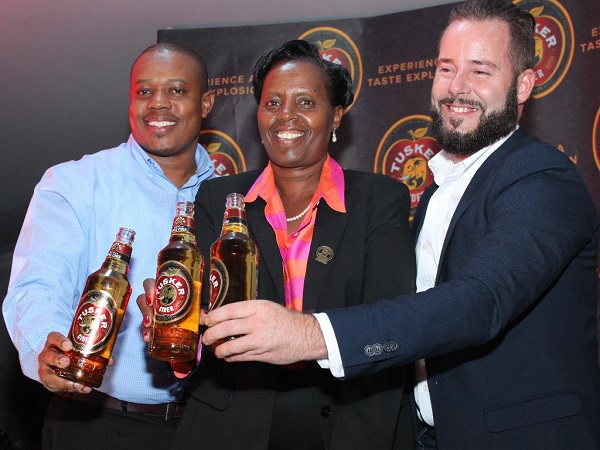Africa
Kenyans Spend Sh74 Billion on Alcohol, Highest in East Africa

According to the just-released full-year results for the period ended June 30 2022, East African Breweries Limited with subsidiaries in Kenya, Tanzania and Uganda sold alcohol worth Sh109.7 billion.
Out of this, 68 percent, or about Sh74.4 billion was bought by Kenyans. Uganda delivered 18 percent of the sales, while the Tanzanian market accounted for 14 percent. Kenya, Uganda and Tanzania grew by 30, 24 and 21 percent respectively.
This amount of money is conservative, given that there are a number of small commercial brewers and microbreweries throughout the country producing cheap spirits.
For a manufacturer who faithfully collects and remits excise duty on a 250ml bottle of vodka or brandy, the Sh120 retail price would barely cover production costs, even before their product leaves the factory floor.
In other parts of the country, manufacturers including London Distillers Kenya (LDK) have discovered a trend where politicians and campaigners have resorted to buying alcohol during their campaigns, some, they believe, is uncontrolled and detrimental to the welfare and health of the consumers.
“It is a trend noted by distributors and manufacturers countrywide that there is an uptick in the consumption of alcohol, some of it illegal. It not only denies the consumer the quality products they deserve, but also denies Kenya Revenue Authority (KRA) its rightful share in terms of revenue,” says a senior manager at the company.
In the case of the spirits market, the biggest advantage for a manufacturer comes from avoiding the steep sin taxes the government levies on alcoholic products evasion that leaves the exchequer with an average of Sh12 billion per year in lost revenue.
Kenyans in the past one year, have endured hard economic times, with the cost of living worsening in the last two years, driven by increase in prices of fuel and basic commodities including wheat, sifted maize flour, bread and cooking oil among others. This, in addition to a congested school calendar that has seen many parents struggle to pay fees, raking up arrears by the month.
Unable to provide for their families, they have been driven to low esteem, with many seeking refuge in alcohol, a problem that manifests mainly amongst men who are forced to depend on their wives.
“The poor drink excessively because they are unemployed, unable to educate their children and unable to fulfil other responsibilities that money can fulfil,” said Paul Mbatia, a sociologist in an earlier interview with a local daily.
“With the youth flocking most campaign rallies across the country, it is possible that organiser find it necessary to supply them with alcohol that is not regulated and below standard,” says the LDK manager.
A 2019 report by the World Cities Culture Forum put the number of bars in Nairobi at 12,500, one of the highest in the world, translating to about 284 bars for every 10,000 people. “This is especially high for third world countries,” the report said.
In 2020, the National Authority for Campaign Against Alcohol and Drug Abuse (Nacada) noted that 16.6 percent of the urban population consumes an alcoholic beverage of sorts, compared to 11.4 percent in the rural areas. Rift Valley led in the consumption of traditional brews with six per cent, while Western region and Nairobi topped the charts in the consumption of chang’aa with 7.1 and 7.2 percent of their populations consuming the spirit.
Nairobi and Central also topped in consumption of mainstream brews at 15.7 percent and 9.2 percent with their populations regularly trooping to bars.
Production and consumption of unrecorded alcoholic beverages can be dangerous and in some instances, lethal. However, it is quite common in Sub-Saharan Africa and Asia. Producing alcohol at home is deeply rooted in Kenya and these locally produced beverages tend to be cheaper than the commercial equivalents.
In Africa, Statistica, a market data portal said Nigerians led the continent consuming over 13 litres of alcohol per capita in 2019, followed by the Kingdom of Eswatini and South Africa ranked second and third respectively, with just under ten litres per person.











